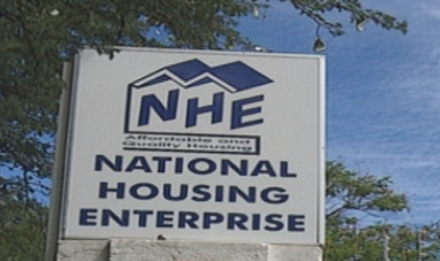
Namibia’s home grown code finally lands
The Corporate Governance Code for Namibia, NamCode was launched by the Namibian Stock Exchange on Wednesday at their offices in Windhoek, where the Minister of Finance was present. Namibian Stock Exchange Vice Chairman Mr. Hans-Bruno Gerdes at the launch said, “The NSX is very pleased and honoured that the Government of Namibia through you, Hon. Minister is here to give your blessings and launch the code for us. This code is not only relevant to NSX listed companies, but a very useful guide to all companies and entities in the public and private sectors.” NamCode is a corporate governance manifesto for companies incorporated under the Companies Act, as well as entities incorporated by statute, e.g. Meatco, or the New Era newspaper, i.e. so-called incorporation by act of parliament.
The code was prepared and drafted by the Namibian Stock Exchange with support from FNB Namibia Holdings Limited. Gerdes said the NSX identified the need for a Namibian corporate governance code in 2009 due to the then imminent implementation of the amended Namibian Companies Act and the introduction of King III in South Africa. He said the aforesaid divergent nature of legislation necessitated Namibia to create its own guide. “The reason why King III could not simply be applied here was due to certain new concepts not being provided for under our existing legislation; the provisions relating to business rescue and the statutory nature of the Audit Committee are but two which come to mind.
Codes such as the NamCode are typically a product of the private sector as it is not legislation and voluntary in its application,” he added. As the NSX regulates compliance with King II as part of its Listing requirements and continuing obligations on listed companies it was clear we needed to update the Namibian position. “Accordingly the NSX contacted the Institute of Directors of South Africa (IODSA) not only for their input on the project but also to be able to use King III as a base for our own document as it contains best practices which we set out to contextualise for Namibia. They graciously offered their services and the use of the King III copyright to work off it.
Work started in researching the Namibian legislative position as well as best practices not contained in King III, or our legislation,” he said. He said fiduciary duties are an example of a concept we identified that could do with additional elaboration in the Namibian context as it is more defined in SA legislation and accordingly not elaborated on in King III. “Once a working version had been created we requested input from the audit firms via the ICAN technical committee, various corporates from their company secretaries as well as the legal fraternity,” Gerdes said. “We were encouraged by the feedback and input on the document and gave us lots to think about in terms of what to add and amend. Various versions were circulated in this manner which in turn lead to various amendments,” he added. “IODSA also gave continuous input as they were looking at international trends post King III compilation for inclusion in this home grown code,” he noted.
He cited that the launch of NamCode would take away the uncertainty in the applicability of best practise in the legislative environment. “It is already applicable to the NSX locally listed companies on an “apply or explain basis”, which means it’s not a rule but rather a guide and if a specific principle is not applicable to a company it requires explanation as to why it’s not being applied,” he explained. “That is the point of these codes, they give guidance and make a company and directors consider the application thereof and in the process increase the level of risk control, measurement and performance of a company,” he added as this was equally important when investors look at a market and companies therein to give confidence and that leads to increase investment. Said Gerdes, “It is our sincere wish that corporate Namibia will embrace these corporate governance principles and thereby make Namibia a winning nation. It is also the wish of the NSX that you, as users of the NamCode, provide us with comments and inputs on how best to improve this version and make it a living document. Updating is envisaged to be done via practice notes that may be issued in time to come.”









































